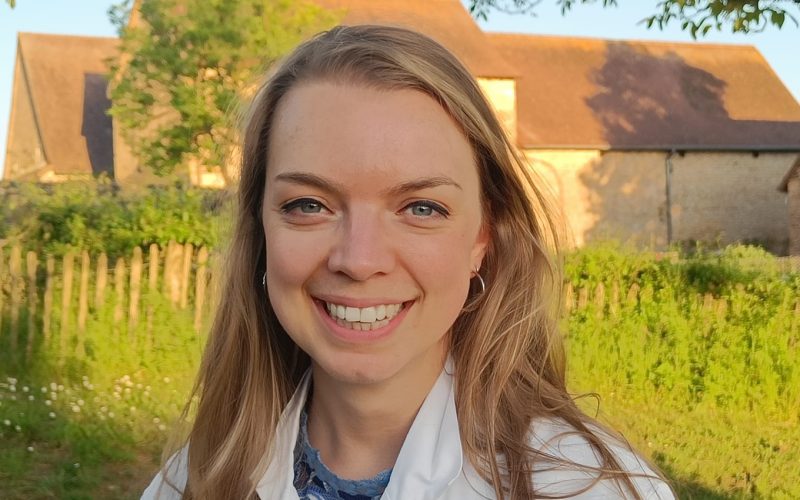Oxygen deprivation around birth is a major cause of mortality and developmental problems in newborns worldwide. It can lead to problems in motoric development, behaviour and cognition. These problems are not always apparent in early development, and the consequences of oxygen deprivation in adolescence and adulthood are currently largely unknown. It is therefore important to continue monitoring children who have experienced severe oxygen deprivation around birth into adolescence. This is one of the main recommendations of physician-researcher neonatology Corline Parmentier (UMC Utrecht), who received her PhD on 27th of May.
In this PhD research, Corline investigated how to improve the care of neonates with oxygen deprivation around birth. In doing so, she focused on clinical data from admission to the neonatal intensive care unit (NICU), MRI images of the brain in the first days of life and developmental data of the children later in life.
Every year, severe oxygen deprivation around birth occurs in one hundred to one hundred and fifty newborns in the Netherlands. Sometimes there is a clear cause for the oxygen deficiency, such as placental detachment or umbilical cord compression, but often the cause remains unknown. Severe oxygen deprivation can cause damage to various organs in newborns, but damage to the brain is the biggest concern. Currently, the only available treatment to prevent or limit brain damage is cooling the newborn to a body temperature of 33.5° Celsius for 72 hours. However, previous research has shown that children treated with cooling as newborns can still develop developmental problems. How can we reduce brain damage in these children? And what does that brain damage mean for the rest of their lives?
Corline Parmentier’s thesis shows that not only cooling, but also good supportive care in the NICU is important to reduce or prevent brain damage. For instance, abnormal blood sugar levels appear to be related to more brain damage and developmental problems. It also shows that an MRI of the brain can be used to make a good estimate of the future development of newborns as early as in the first days of life. On this MRI, the presence, location, and severity of brain damage are assessed by means of a score. This MRI score was previously developed at UMC Utrecht by former PhD student Lauren Weeke, now a paediatrician training to be a neonatologist, and is now used worldwide to inform parents about their child’s future development soon after birth.
Neonatologists are already doing follow-up research at ages 2 years, 5 years and 8 years. Earlier PhD research by Kim Annink showed that many children who suffered oxygen deprivation around birth have problems later in life with their attention and memory, among other things. ‘This information is very important to help parents and children explain the problems they encounter. I love that I was able to build on this research to provide even more targeted information to the parents of these young brain-damaged patients.’ appoints Corline. She investigated when the effects of brain damage from oxygen deprivation are manifested, showing that for some of the children, these effects do not become apparent until they start school. ‘It is important that we also investigate the impact of oxygen deprivation around birth in adolescence and in adulthood,’ Corline states. ‘There is a lot of need among parents and children for information about the possible consequences that may come into play when the children start studying or work. At the moment, we cannot answer that.’
Expanding follow-up for newborns with problems around birth is challenging due to financial and logistical constraints. Corline hopes that through increased collaboration in care and research, care for these newborns can be further improved. Corline: ‘To make better follow-up care feasible, we need to keep looking critically at what is or is not needed. More cooperation between different disciplines, such as paediatricians, offers a great opportunity to collect additional information about the children’s development in an accessible way. There are also opportunities in the use of E-health for the follow-up of newborns, for instance through online questionnaires or filming developmental tests in the home setting. We are also exploring the role of music in following up children’s development.’ But collaboration with patients is also important. ‘I think we as researchers and healthcare providers can learn a huge amount from the experiences of the children and parents,’ he says.
The neonatal neurology expertise centre within UMC Utrecht focuses on diagnosis and treatment of newborn children with brain damage.
